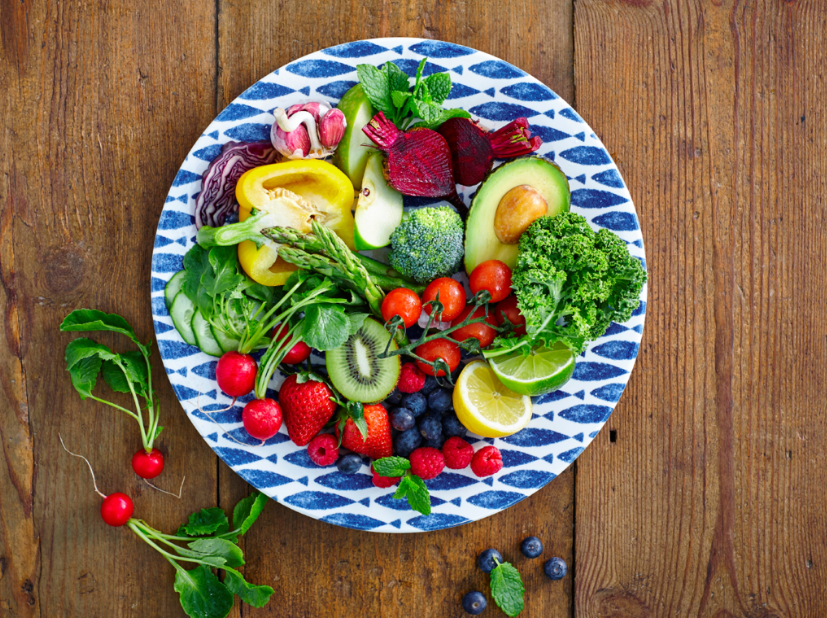There's even more evidence that one type of diet is the best for your body and brain

Your support helps us to tell the story
From reproductive rights to climate change to Big Tech, The Independent is on the ground when the story is developing. Whether it's investigating the financials of Elon Musk's pro-Trump PAC or producing our latest documentary, 'The A Word', which shines a light on the American women fighting for reproductive rights, we know how important it is to parse out the facts from the messaging.
At such a critical moment in US history, we need reporters on the ground. Your donation allows us to keep sending journalists to speak to both sides of the story.
The Independent is trusted by Americans across the entire political spectrum. And unlike many other quality news outlets, we choose not to lock Americans out of our reporting and analysis with paywalls. We believe quality journalism should be available to everyone, paid for by those who can afford it.
Your support makes all the difference.In a world dominated by celebrity fad diets that range from absurd, like Reese Witherspoon's alleged "baby-food diet," to absurdly unaffordable, such as the $200 "moon dust"-infused smoothie that Gwyneth Paltrow drinks, many people don't believe there's a single best diet for your health.
But a growing body of evidence suggests that a plant-based diet -- which focuses on vegetables while incorporating whole grains and lean proteins -- reigns supreme. It's been found to be ideal for losing weight, staying lean, and keeping the mind sharp.
Plant-based diets are "good for the environment, your heart, your weight, and your overall health," according to US News and World Report's most recent report on the best eating plans.
Such diets come in many forms, but a new study suggests that the two best for protecting the brain from age-related cognitive decline are the Mediterranean diet and the MIND diet, a version of the Mediterranean plan that focuses on "brain-healthy" foods.
The Mediterranean diet is rich in vegetables, fruits, whole grains, beans, nuts, olive oil, and fish; it's low in red meat, processed foods, poultry, and dairy. The MIND diet emphasizes green leafy vegetables, nuts, berries, beans, whole grains, seafood, poultry, olive oil, and wine. Those following this regimen limit or eliminate red meat, butter and stick margarine, cheese, pastries, sweets, and fried foods.

Mediterranean and MIND for the mind
For the new study, published July 25 in the Journal of the American Geriatrics Society, researchers looked at data from close to 6,000 older adults who participated in a large study on health and retirement. First, they asked participants about their diet and the types of foods they ate or did not eat. Then they measured their memory and attention skills using reliable tests like word lists and backward counting exercises.
The researchers compared the participants' diets to how they performed on the cognitive tests. Those whose eating plans lined up with Mediterranean and MIND-style diets did significantly better than those on other types of diets did.
In fact, the more closely aligned their diets were with a Mediterranean-style plan, the lower their risk of scoring poorly on the brain tests.
"These findings lend support to the hypothesis that diet modification may be an important public health strategy to protect against neurodegeneration during aging," Claire McEvoy, the lead author of the paper and a nutritional epidemiologist at the University of California San Francisco, wrote in the paper.
Researchers still aren't sure why these type of eating plans appear to be so beneficial for the brain, but they have some clues.
Both diets are rich in antioxidants and two types of healthy fat -- monounsaturated and omega-3 fatty acids. Previous studies have found a link between these ingredients and a reduced risk of dementia as well as higher cognitive performance. And the green vegetables and berries emphasized in the MIND diet have been shown to help protect against progressive loss of the structure or function of brain cells. This loss, known as neurodegeneration, is a key characteristic of diseases like Parkinson's and Alzheimer's.
But plant-based diets aren't just good for the brain -- they have key benefits for the body as well.
Why plant-based diets are good for the body
Cara Anselmo, a nutritionist and dietitian at New York's Memorial Sloan-Kettering Cancer Center, told Business Insider that she frequently advises her clients to ramp up their intake of plant-based foods and cut back on red meat and refined carbohydrates like white bread.
To keep your energy levels up and help you feel healthy in the long term, your diet needs to feed more than your stomach, Anselmo told Business Insider. It has to satiate your muscles, which crave protein; your digestive system, which runs best with fiber; and your tissues and bones, which work optimally when they're getting vitamins from food.
A plant-based diet's combination of whole grains, fruits, vegetables, proteins, and fats accomplishes that goal.
This balance is also key to keeping you full after a meal and energized throughout the day so you don't feel the need to overeat, Nichola Whitehead, a registered dietitian with a private practice in the UK, told Business Insider.
"You need to have a balanced meal -- things like whole grains, fiber, and vegetables -- in order to sustain your blood sugar. Empty calories [like white bread or white rice] give a temporary fix," she said.
Plant-based diets also tend to reduce the risk of certain diseases including heart disease, diabetes, and some types of cancer.
"When you look at overall dietary patterns it's a more whole-foods, plant-based diet that tends to be healthier in terms of less disease risk," Anselmo said. "People get caught up in things like, 'Well, how much iron or Vitamin C does this have?' But the reality is that the whole foods are just going to naturally be higher in those things."
• 13 signs that you're dating a sociopath
• Seven phrases that could mean it's time to end a relationship
• The types of people most likely to cheat in relationships
Read the original article on Business Insider UK. © 2017. Follow Business Insider UK on Twitter.
Join our commenting forum
Join thought-provoking conversations, follow other Independent readers and see their replies
Comments